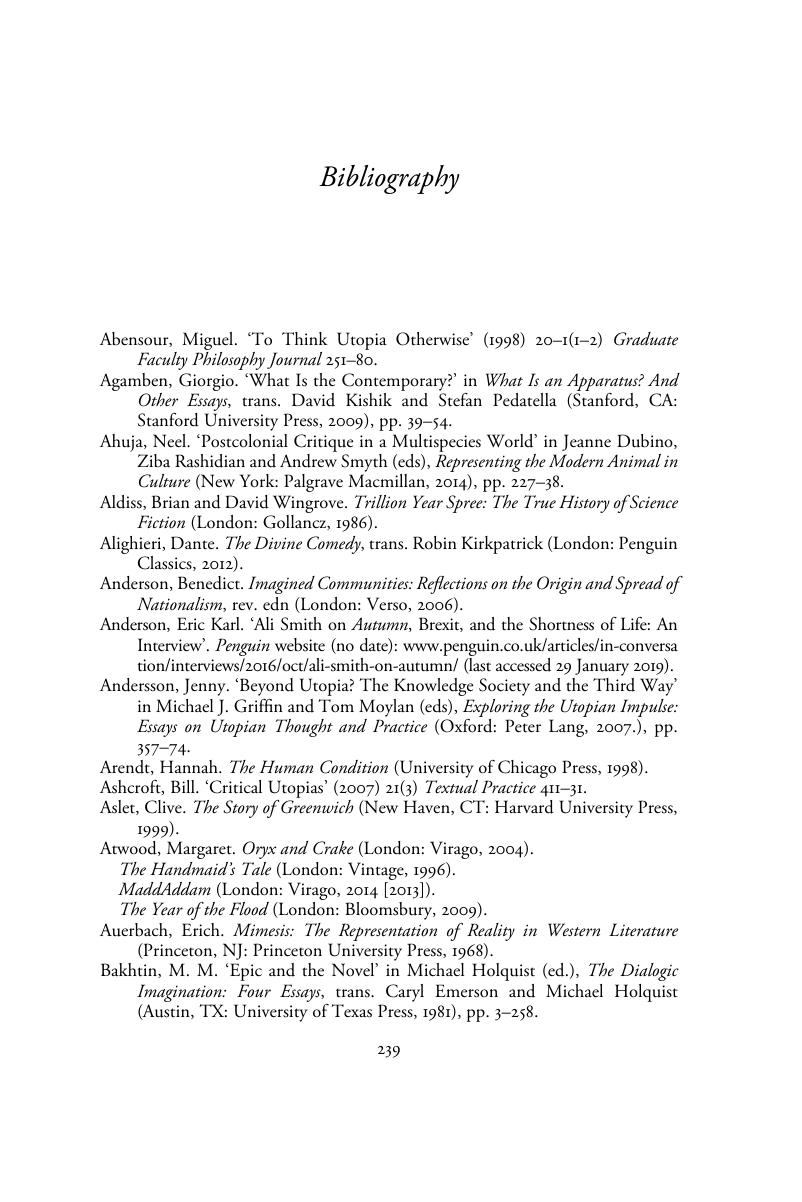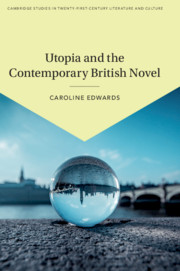Book contents
- Utopia and the Contemporary British Novel
- Cambridge Studies in Twenty-First-Century Literature and Culture
- Utopia and the Contemporary British Novel
- Copyright page
- Dedication
- Contents
- Acknowledgements
- Chapter 1 Introduction
- Chapter 2 Reading Fictions of the Not Yet
- Chapter 3 Death
- Chapter 4 Transmigration
- Chapter 5 Apocalypse
- Chapter 6 Epilogue
- Notes
- Bibliography
- Index
- References
Bibliography
Published online by Cambridge University Press: 01 July 2019
- Utopia and the Contemporary British Novel
- Cambridge Studies in Twenty-First-Century Literature and Culture
- Utopia and the Contemporary British Novel
- Copyright page
- Dedication
- Contents
- Acknowledgements
- Chapter 1 Introduction
- Chapter 2 Reading Fictions of the Not Yet
- Chapter 3 Death
- Chapter 4 Transmigration
- Chapter 5 Apocalypse
- Chapter 6 Epilogue
- Notes
- Bibliography
- Index
- References
Summary

- Type
- Chapter
- Information
- Utopia and the Contemporary British Novel , pp. 239 - 253Publisher: Cambridge University PressPrint publication year: 2019

